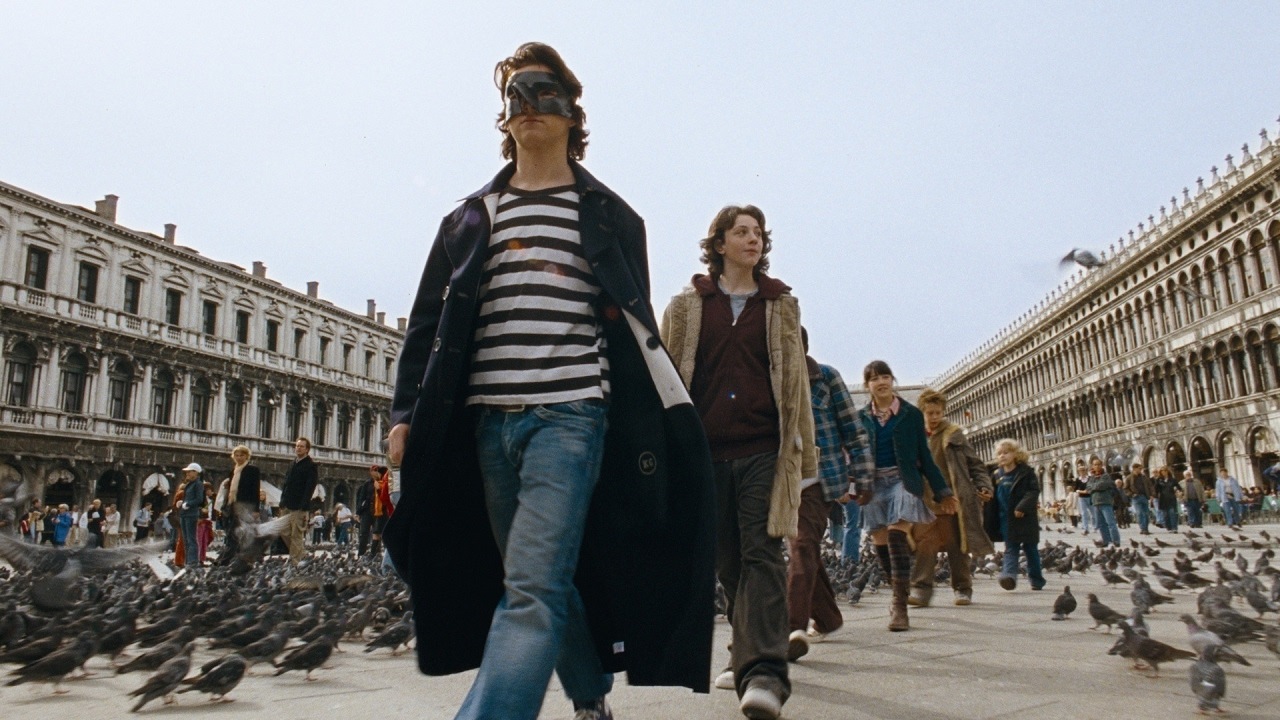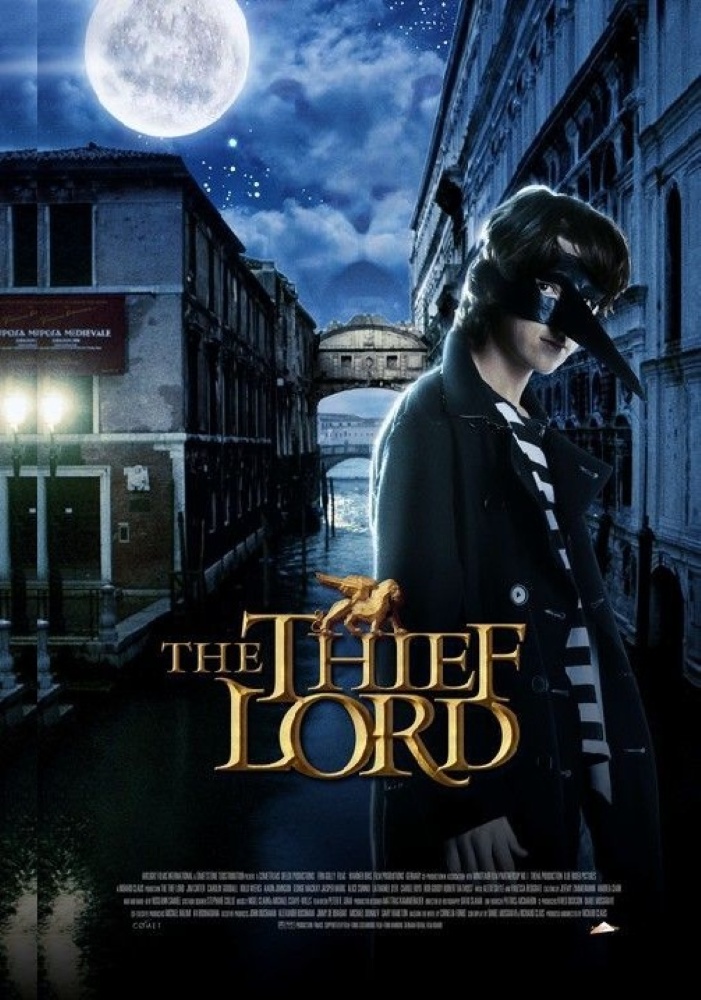Crew
Director/Producer – Richard Claus, Screenplay – Richard Claus & Daniel Musgrave, Based on the Novel The Thief Lord (2002) by Cornelia Funke, Photography – David Slama, Music – Nigel Clarke & Michael Csanyi-Wills, Visual Effects – Ambient Entertainment, Cinesoup & Pictorian Das Werk Hamburg (Supervisor – Jan Kruse), Special Effects Supervisor – Alain Couty, Production Design – Matthias Kammermeier. Production Company – Comet Films/Delux Productions/Fern Gully Films/Warner Bros. Film Productions Germany/Minotaur Films Partnership No. 1/Thema Production/Blue Rider Pictures.
Cast
Aaron Johnson (Prosper), Rollo Weeks (Scipio), Jasper Harris (Bo/Boniface), Jim Carter (Victor Getz), George MacKay (Riccio), Alice Connor (Hornet), Lathaniel Dyer (Mosca), Caroline Goodall (Ida), Alexei Sayle (Ernesto Barbarossa), Carole Boyd (Esther Hattlieb), Bob Goody (Maximilian Hattlieb), Robert Bathurst (Dottore Massimo), Geoffrey Hutchings (Conte), Vanessa Redgrave (Sister Antonia), Zak Davies (Baby Barbarossa), Anight Wright (Contessa), Poppy Rogers (Montosina), Lewis Crutch (Renzo)
Plot
Prosper’s six-year-old brother Boniface or Bo has been adopted by their horrible aunt and uncle Maximilian and Esther Hattlieb. Prosper helps Bo escape and the two of them stow away to Venice, the place their late mother said was always filled with magic. Getting into trouble trying to steal some medicine, they are aided by the masked Scipio, the self-styled Thief Lord, who takes them to stay with a group of orphans who live in an abandoned cinema. Prosper is instrumental in helping the gang negotiate with the black market dealer Ernesto Barbarossa to get better prices for the items that Scipio steals. At the same time, the Hattliebs have hired private detective Victor Getz to find the boys. Barbarossa offers them an assignment on behalf of a mysterious Conte to break into a villa and steal a wooden wing that reputedly has magical powers of rejuvenation. Their assignment involves striking a deal with Victor in order to conduct the robbery but they must deal with their treacherous paymasters. In the midst of this, Prosper and Bo discover that Scipio is not the great orphan thief he claims.
The Thief Lord is a children’s film from Germany. Director Richard Claus, in only his second film, adapts a work from popular children’s author Cornelia Funke – Funke’s books also formed the basis of the film Inkheart (2008), as well as several other German-language productions. The Thief Lord (2002) was one of the earliest of Funke’s works to be published in English language. The film version here, though being shot in English and doing well in Europe, received a disappointing response, being consigned directly to dvd in the US market.
The surprise about such poor recognition is just what a good children’s film that The Thief Lord turns out to be. The majority of US-made children’s films by comparison – look no further than those that are churned out for the Disney Channel – are tossed off without any effort put into the sense of wonder, the sets, the writing or even the casting. The Thief Lord puts that aside and crafts a children’s film with genuine care and attention as though it were a film being made as for adults. There is no stretching for cheap wonderment and maudlin sentiment as there might be in a Disney Channel equivalent; the children are not cast for their homogenous blandness but for their acting skills.
And the level of writing and acting in the film is far better than 95% of all other children’s films. In the central role of Scipio, Rollo Weeks has magnificent presence – one would swear he is an adult actor and when he appears in his mask, he has something of the dark charisma of Antonio Banderas’s Zorro. Aaron Johnson’s Prosper and George McKay’s Riccio both have a wry charlatanism that would make for perfect casting in a Dickens adaptation.

Richard Claus directs with a rich sweep and one is absorbed in a strong and intelligent story. The filmmakers have gone to shoot on location in Venice, which gives the film an air of elegance, class and mystery that no studio-bound children’s film could find. Claus makes a point of withholding the fantasy elements, leaving one in a careful state of ambiguity as to whether the wooden wing actually has any power until the very end. Indeed, for the entirety of the film up until its last ten minutes, The Thief Lord could play as a mundane film. If only some of the American children’s films with their routine production of animated glows of magic would learn this lesson.
There is a surprisingly adult theme about age and youth that runs throughout the story – Scipio wants to become older so that he can be an adult and gain freedom from his oppressive home life, which is contrasted with the Conte and his sister and their desire to revert to children again so that they can enjoy the youth that Scipio despises.
The Thief Lord has a radical attitude in contrast to the moral tone of most American films. Most American films regard children as needing to respect adult authority; The Thief Lord contrarily gives us a rebellion fantasy and shows children happily living on their own as orphans. The family units we do see are ones where the adults are cruel and authoritarian and the children are clearly not happy there. The film takes the surprisingly bold attitude of saying that children should have the right to stand up to bad parents and choose who they want to look after them.


